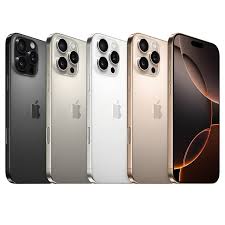During its summer quarter, Apple recovered from a previous decline in iPhone sales, indicating that its recent attempts to boost demand for its flagship product by incorporating artificial intelligence are beginning to bear fruit.
According to Apple’s fiscal fourth-quarter report, which was made public on Thursday, sales of the iPhone for the July–September period came to $46.22 billion, a 6% rise over the same period last year.
Two successive year-over-year drops in the iPhone’s quarterly sales were reversed by that improvement.
Aside from a one-time charge of $10.2 billion to cover a recent European Union court ruling that landed the Cupertino, California-based company with a massive bill for back taxes, the iPhone boost helped Apple deliver total quarterly revenue and profit that surpassed the analyst projections that influence investors.
Apple’s earnings at this time last year were 36% lower at $14.74 billion, or 97 cents per share.
Apple said that it would have made $1.64 per share if not for the one-time tax charge, exceeding the $1.60 per share experts had projected, according to FactSet Research.
Revenue reached $94.93 billion, up 6% from the previous year and almost $400 million higher than analysts had predicted.
However, Apple’s prediction suggested that its revenue for the October-December quarter, which includes the Christmas shopping season, could not expand as vigorously as analysts had anticipated, disappointing investors who were hoping for an even better quarter.
During Thursday’s extended trading, Apple’s stock price dropped by almost 2%, landing at about $221, far below its mid-October top of roughly $237.
The most recent quarterly results documented the initial days of the new iPhone 16 lineup’s availability to consumers.
The lineup consisted of four distinct models, each of which was built to handle a separate AI wizardry that the business is promoting as “Apple Intelligence.”
Apple is using the branding to set itself apart from competitors like Samsung and Google, who were able to introduce AI inside devices before Apple did.
Laptops 1000Even though AI was a key component of the iPhone 16, it wasn’t until Apple released a free software update earlier this week that enabled its first set of technological tricks, including a feature that made Siri, its virtual assistant, smarter, more versatile, and more colorful, that the technology became accessible.
Additionally, those advancements are currently exclusively accessible in the United States.
During a conference call on Thursday, Apple CEO Tim Cook informed analysts, “We think generative AI has a lot more potential than this.”
In addition to releasing software updates that will further integrate the technology into the iPhone 16 and two high-end iPhone 15 models that also come with the specialized computer chips required for the slick new features, Cook stated plans to bring the AI iPhone features to other nations in December.
In order to utilize technology that Apple isn’t producing internally, the December extension will offer the ability to link with OpenAI’s ChatGPT.
Additional languages.
Investors are placing bets that the hundreds of millions of customers currently using outdated iPhone models would be enticed to switch to the newest versions as Apple’s AI becomes more widely accessible.
Cook declared, “We think it’s a compelling upgrade reason.” However, Thomas Monteiro, an analyst for Investing.com, thinks that if customers were astounded by Apple’s AI technology, iPhone sales would already be climbing more quickly, putting more pressure on the business “to do an overall better job to impress the public.”

















